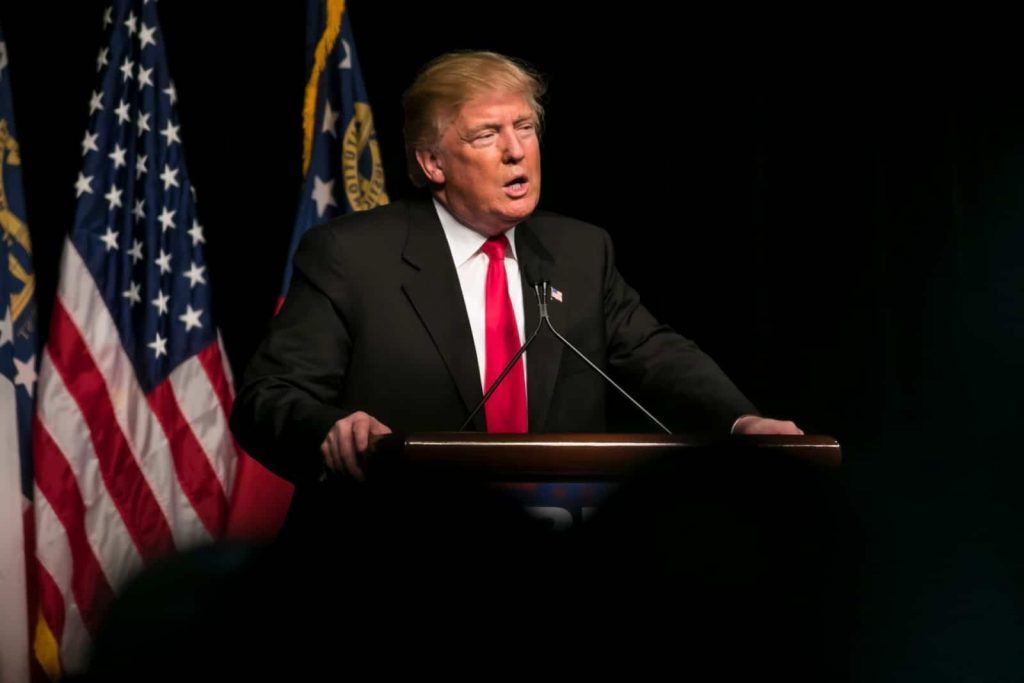Anybody paying attention to the Trump White House’s relentless determination to roll back racial progress in America back to the 1950s, knew the administration was salivating to crush affirmative action, the policy that was designed to address historical wrongs against African Americans and other minority group by ensuring a smidgeon of diversity on college campuses and in federal workplaces.
When Supreme Court Justice Anthony Kennedy recently announced he was retiring from the court at the end of Jun, the Administration was handed the opportunity it had been waiting for. Ironically, it was Kennedy who in 2016’s Fisher vs. the University of Texas at Austin, authored the decision that affirms a Court of Appeals ruling that had upheld the university’s affirmative action program.
Now, with Kennedy’s retirement imminent, the White House is wasting no time in mounting its attack: the administration recently announced that it was abandoning Obama era policies that called on universities to consider race as a factor in diversifying their campuses.
Although this bigoted White House’s actions were predictable, I was still filled with a mixture of anger and despair because I know from first-hand experience how necessary and important affirmative action is.
When I earned a scholarship to the University of Chicago, it was quite a feat for a young girl who had grown up on the wrong side of the tracks in the projects of St. Louis. I had worked hard to earn good grades and firmly believed I was just as deserving to attend the prestigious school as any other student. Still, as much as I had studied, nothing prepared me for the culture shock I experienced when I arrived on campus.
I immediately encountered students who were descendants of some of the riches families in the country and they hailed from rich communities that I had only see portrayed in Hollywood movies. While most of my knowledge came from the classroom and reading library books, many of my classmates had real life, interactive learning—they had traveled abroad and learned history and culture first hand. I had only looked at pictures of the Louvre and the great Pyramids. Most of my classmates had been there! The same advantageous applied to technology. While I was just learning how to navigate a computer, they had been exposed to computer labs since the ninth grade. My extracurricular learning came from street corner wisemen and women, while the majority of my classmates’ spent their evenings talking to their parents who were doctors, lawyers, judges and CEOs. As freshmen, they were already accustomed to discussing intellectual ideas and concepts that I’d never even heard of.
The bottom line is I got a quick and powerful lesson in the way the world works. I discovered that there was no level playing field. That colorblind society, the meritocracy that conservatives wax so eloquently about didn’t exist. Some students were already three steps ahead of the game before the starter’s pistol was even fired. They weren’t inherently smarter than me or the few other students at my college whose backgrounds were more similar to mine, but they had a competitive advantage that many minority students simply did not.
It’s interesting that Trump’s attack on affirmative action did not also include an a similar effort to end legacy admissions, the preferences given by schools to certain applicants—who are overwhelmingly white—based on their familial relationship to alumni of that institution. Nor has there been any mention from the current administration about wealthy parents who literally buy their children’s admission into prestigious schools.
According to author Dan Golden who wrote a book on the subject, the list includes a who’s who of the rich and famous, including former Sen. Bill Frist, whose son was accepted at Princeton after his family donated millions of dollars. Businessman Robert Bass gave $25 million to Stanford University, which then accepted his daughter. And Jared Kushner’s father pledged $2.5 million to Harvard University, which then—admitted the future Trump son-in-law.
But what irks me the most about White House’s attack on affirmative action is the sheer hypocrisy. Far from being a color-blind meritocracy, many of Trump’s White House appointments come straight out of the nepotism and favoritism playbook. There’s the aforementioned Jared Kushner and his wife, Ivanka, the president’s daughter, neither of whom had a scintilla of government experience but now hold plumb senior advisor jobs; there’s billionaire Betsy DeVos, who never attended public school but is now Trump’s Secretary of Education; Ben Carson , had no experience in housing policy or working for the government but still was appointed the secretary of housing and urban development. And then there’s Trump, himself, the only American president who came into office with no military or political experience.
With the opportunity to make a second appointment to the Supreme Court, we can expect the fallout from the roll back of the guidance on affirmative action to be the beginning of the end to diversity and inclusion policies in college admissions.
With Justice Kennedy’s retirement looming, many Democratic senators are focused on the potential of a successor to provide a decisive vote in overturning Roe vs. Wade, the landmark 1973 case that established a constitutional right to abortion. Justice Kennedy frequently sided with the court’s liberals in preserving the law.
The short list for appointments—Judges Brett Kavanaugh, Amy Coney Barrett, Raymond Kethledge and Thomas Hardiman-are not only conservatives, but have gotten the seal of approval from the Federalist Society. They are all likely to move the court further to the right and without the swing vote that Justice Kennedy wielded, we are likely to see the end of affirmative action.
As we await Trump’s reality show like primetime announcement of his Supreme Court pick, Democratic senators should be aware that African Americans and other minorities regard affirmative action as important as abortion. And preserving colleges’ right to use race as a factor in admissions as articulated by Justice Kennedy in the Fisher decision should be given the highest priority. We will be watching to see how vigorously our elected officials defend the policy, and we will remember when we vote in November.



